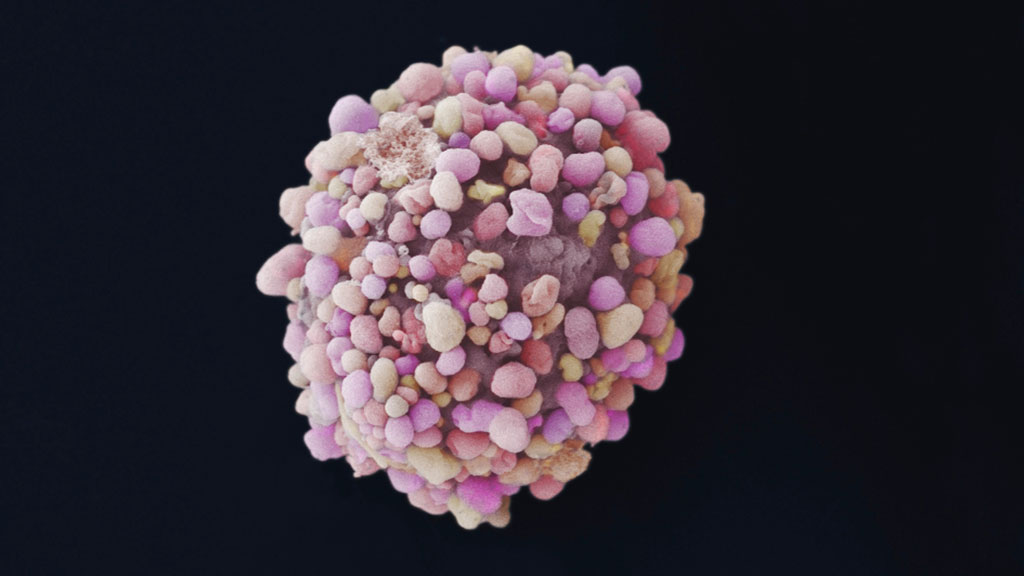Cerebrospinal Fluid Liquid Biopsy for Diagnosis of Metastatic Breast Cancer
Posted on 23 Mar 2022
A liquid biopsy technique that detects cell-free tumor DNA (ctDNA) in the cerebrospinal fluid (CSF) offers the possibility for early and definitive diagnosis of leptomeningeal metastasis of breast and other cancers.
Leptomeningeal metastasis (BCLM) occurs when the cancer cells invade the cerebrospinal fluid and spread throughout the central nervous system. The metastatic tumor cells grow either attached to the pia mater covering the brain and spinal cord or floating unattached to the subarachnoid space. Tumors of diverse origins and hematologic cancers may spread to this space. Leptomeningeal metastasis occurs in about 5-10% percent of patients who have breast cancer that has spread to other parts of the body.

Currently leptomeningeal metastasis is diagnosed by lumbar puncture cytology, where spinal fluid is collected from the lower back and then analyzed under a microscope, and by MRI scans. Patients often have to undergo repeated lumbar punctures for a definitive diagnosis due to problems of impaired sensitivity, which delays diagnosis and treatment initiation. Furthermore, during BCLM therapy, there are no quantitative response markers to guide clinical decision-making.
For these reasons, investigators at The Institute of Cancer Research, London (United Kingdom) explored the use of ultra-low-pass whole genome sequencing (ulpWGS), a methodology requiring no upfront knowledge of tumor mutations, as the basis of a liquid biopsy for the detection of ctDNA in the CSF of BCLM patients. Liquid biopsies are normally performed using samples of blood plasma, but as BCLM occurs in the central nervous system, little to no cancer DNA is found in the blood, since the blood brain barrier prevents tumor cells from entering the bloodstream.
In this study, cell-free DNA was extracted from the CSF and plasma of 30 breast cancer patients undergoing investigation for BCLM. The ctDNA fraction was assessed by ulpWGS, which does not require prior tumor sequencing.
Results revealed that ctDNA could be detected in the CSF of all 24 patients with BCLM, regardless of negative cytology or borderline MRI imaging, whereas CSF ctDNA was not detected in the six patients without BCLM.
Senior author Dr. Clare Isacke, professor of molecular cell biology at The Institute of Cancer Research, London, said, "Leptomeningeal metastasis is an aggressive type of advanced breast cancer that has an average survival rate of just three to four months and urgently needs more research. This test shows real promise and is a step towards a more personalized approach to treating this disease, as it will allow doctors to predict, and more accurately measure, how well a patient will respond to therapy. Importantly, this research also demonstrates the value of spinal fluid liquid biopsies as a method of diagnosis for cancers that are otherwise difficult to diagnose due to the blood brain barrier. There is potential for this type of test to be used in future to diagnose other types of cancer that have spread to, or originate in the brain."
The BCLM study was published in the March 15, 2022, online edition of the journal Clinical Cancer Research.
Related Links:
Institute of Cancer Research, London














